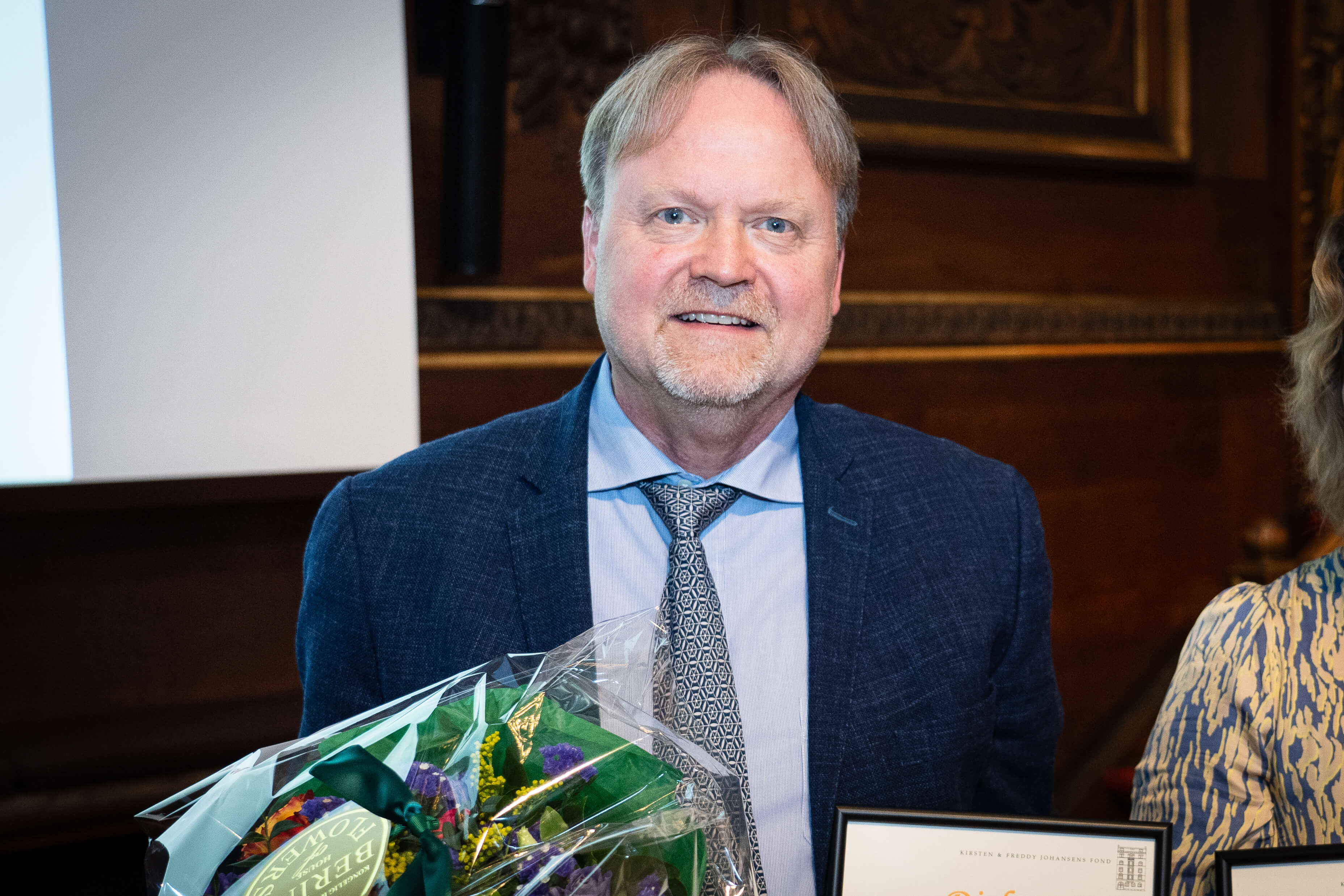Patients infected with new virus sparked professor’s interest in virology
Today, Professor Jens Bukh receives the preclinical KFJ Award for his ground-breaking research into i.a. hepatitis C.

Professor Jens Bukh had not planned on becoming a virologist. In 1989, he graduated medical school and got his first job at Hvidovre Hospital.
When a new virus emerged, he started to review patient records and discovered a connection between alcohol assumption and chronic liver disease in patients affected with the new virus, hepatitis C.
“I got a chance to work in the lab and acquire some of the latest new techniques. I enjoyed it immensely and developed an interest in virolog,” says Jens Bukh who works daily at the research center Copenhagen Hepatitis C Program (CO-HEP).
Today, he receives the preclinical KFJ Award, which is given to researchers who over a number of years have made significant, top-class contributions to their field.
“It means a lot to me. First, I consider the award a recognition of my efforts to promote diagnoses and treatment of hepatitis C virus, which has provided patients with a cure for the disease,” Jens Bukh says and adds:
“Second, this award is special because it is given to you by your colleagues at the university. And getting this kind of recognition from your colleagues means a lot.”
The award comes with DKK 1.75 million, DKK 250,000 of which is a personal prize.
“It is funding for free research, which means that I decide which projects to spend it on. I have not given it a lot of thought, though, but right now my main focus is on developing vaccines for hepatitis C,” Jens Bukh says.
A fatal disease
When Jens Bukh first started researching hepatitis C there was no cure for the disease. Patients could be treated with interferon for a year, suffering great side effects, but could not expect to be cured.
“Therefore, I felt that developing a drug for the disease had great potential,” Jens Bukh explains and stresses that it is the interplay between fundamental and clinical research that allows researchers to develop the best treatment.
“The Faculty of Health and Medical Sciences and the Department of Infectious Diseases at Hvidovre Hospital work closely together, and this has enabled us to do translational research,” he says.
Today, hepatitis continues to be widespread, but due to i.a. Jens Bukh’s translational research it will not kill you if treated correctly.
“Now I focus on studying a type of antiviral treatment that can be used not just on hepatitis C, but on a range of viruses,” he says and adds:
“So if we get a new pandemic, we can start treating people with these antivirals.”
Moreover, his research focusses on resistance. Because like bacteria, viruses can mutate and escape treatment.
“I am very interested not just in describing how viruses escape treatment, but also in understanding how they do it. What mechanisms are involved? We can use this knowledge to optimise existing treatments and develop new ones.”
Contact
Professor Jens Bukh
jbukh@sund.ku.dk
+4523418969
